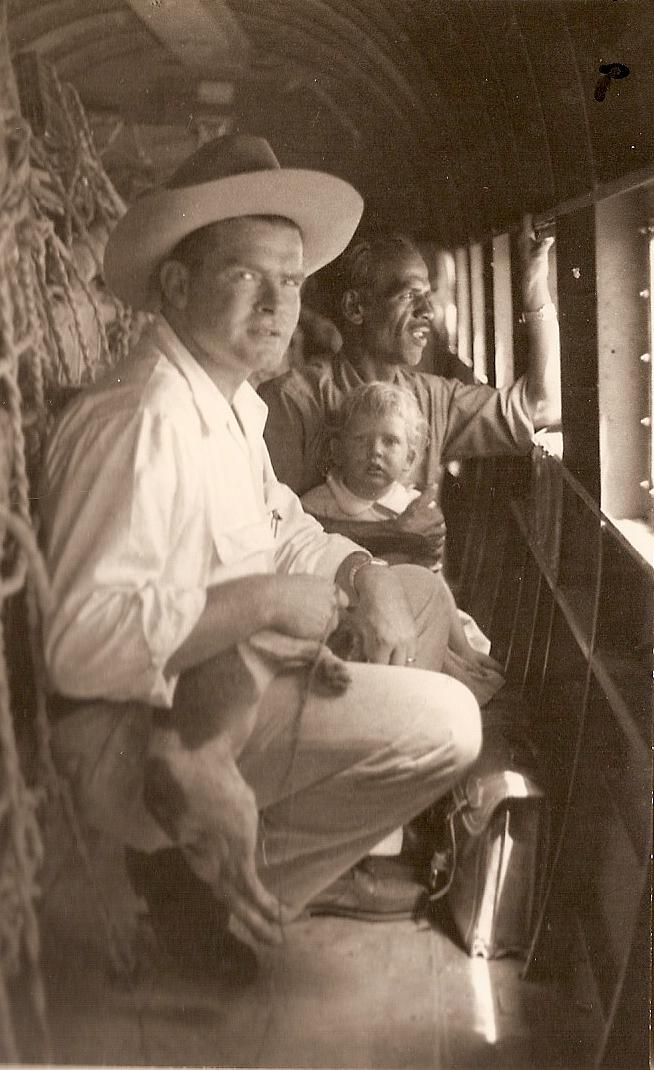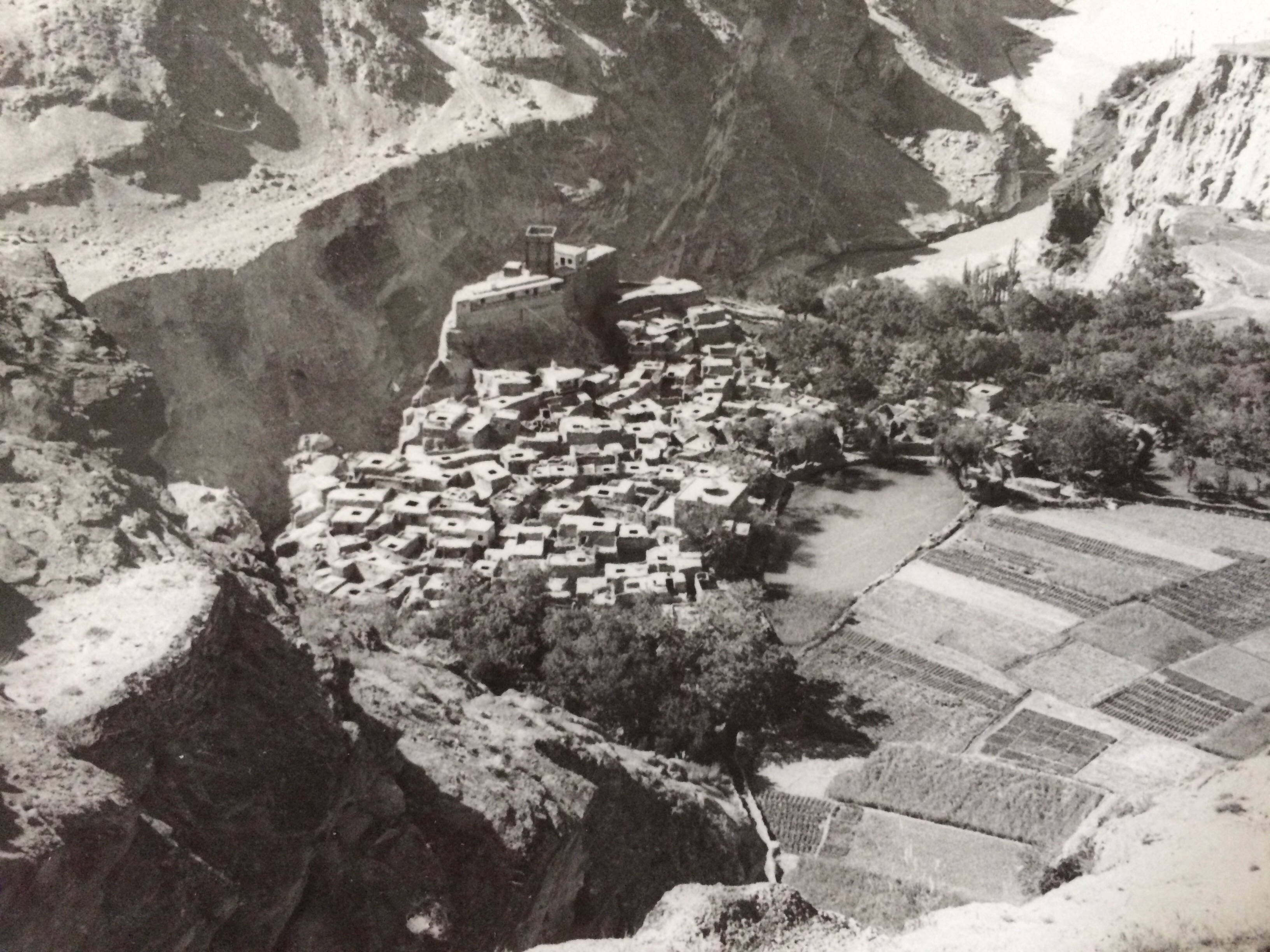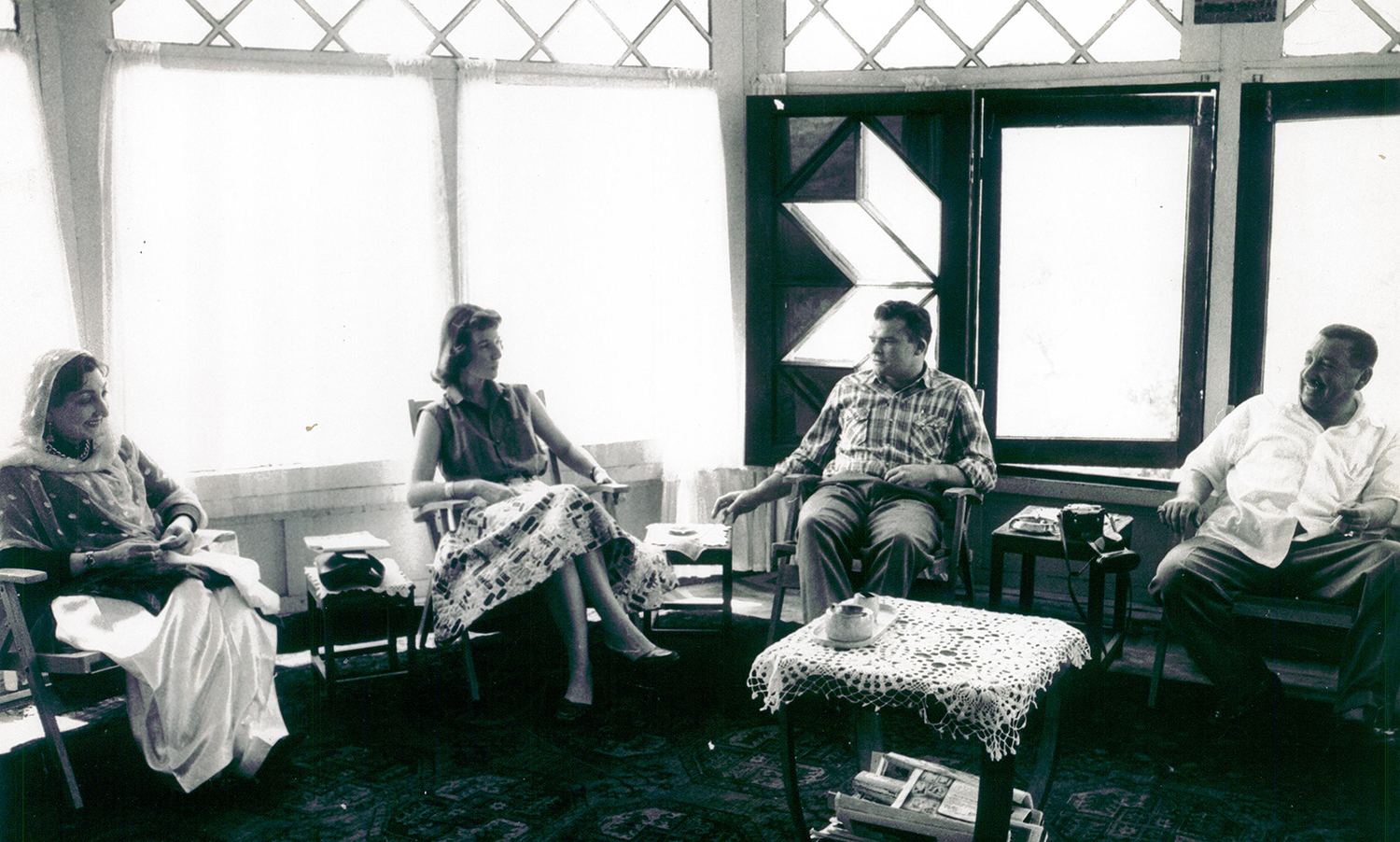Teacher, athlete, executive contributed to south Asia’s postwar transformation

Mumby family photo
In 1941, as World War II forced cataclysmic changes far beyond its theaters of action, a U.S.-born Methodist missionary moved his family to Stanford from Lucknow, India, where he ran a college of physical education.
The Mumbys – father Ted, son Winston and many of their descendants – reveal Stanford’s growing internationalism in those years as the world rushed into the bucolic Farm and as Stanford and its alumni made a growing impact in the world.
Win Mumby, ’48, returned to south Asia after earning his BA from the School of Education, working as teacher, coach, corporate executive and educational adviser and benefactor. He taught girls and boys on an equal basis in Hunza, Pakistan, when learning for girls was not common. He helped transform his former high school, Woodstock School, into one of the top private schools on the Indian subcontinent.
Athletic, charming, larger than life, Win Mumby helped to spread U.S. culture in Asia and to raise the prestige of American education in ways that shape the region’s social landscape today.
When World War II broke out, India was a reluctant part of the British Empire. Colonial officials jailed independence activists, fearing their reputed ties with Germany. The Mumbys seized the chance to return to the United States, which had not yet entered the war. Ted chose Stanford because Everett Dean, the basketball coach, was a college friend.
From 1941 to 1945, Ted coached
Stanford’s wrestling team. After service flying B-17 bombers for the U.S. Air
Force, Win enrolled on the Farm. He dived, threw the shot put and wrestled for Stanford
as a 165-pounder, often competing against his brother Hugh, who wrestled across
the Bay for Cal. When Ted moved to San Jose State, Win succeeded him as coach
even though still a student. Meanwhile, Ted spoke publicly, including at
Stanford, for Indian independence.
In 1950, as soon as Win could get a visa, he obtained the athletic directorship at Woodstock, in the hill station of Mussoorie, where British colonials once escaped India’s hot summers.

Mumby family photo
Initially teaching science and coaching several sports, Win eventually helped Woodstock become the third high school outside North America and the first school in Asia to receive U.S. accreditation through the Middle States Association of Colleges and Secondary Schools.
“Did he open our eyes with amazement!” recalls classmate Tao-Zeun Chu, who later helped raise funds for a gym in Win’s name. “We had never seen competitive diving and swimming at the level Win demonstrated and coached.”
Win also met his future wife, Carol, the school nurse. She impressed him by catching a fish in a mountain lake using only a safety pin as a hook.
Seven days before their planned wedding in 1951, Carol developed polio. Win moved into the isolation unit with her, helping her parents care for her day and night until she recovered.
“It shows the enormous confidence my father had in whatever he wanted to do,” said his daughter, Stanford alumna Lynn Mumby. “He never shirked what he felt he should do – to go into isolation to take care of his fiancée.
“His father-in-law could never believe that he would risk his life to do that, given that he was still unmarried.”
Later, Win’s fluency in Urdu and his Western education commended him to the Aga Khan, spiritual leader of the Ismaili Muslim people, as family tutor for the Mir, or ruler, of Hunza, a tiny kingdom in a Himalayan valley in Pakistan.
Until the 1980s, there was no vehicular access into Hunza. The Mumbys, who soon included little Lynn and her brothers, Ted and Kim, reached their new posting via unpressurized DC3 to Gilgit, then rode two days on horseback over precipitous mountain trails.
For five years, Mumby taught the Mir’s children in a classroom overlooking the Himalayas. Hired mainly to teach Crown Prince Ghazanfar Ali Khan (the current Mir and governor of Gilgit), he gradually brought other royal siblings and cousins into the classroom, male and female. A Life magazine photographer sent to record Mumby’s adventures in 1959 depicts him playing polo with the Himalayas as backdrop, as well as coaching the locals in golf. The photoessay was titled "Win Mumby for Adventure."

Mumby family photo
Meanwhile, a second wave of Western missionary activity was washing over south Asia.
“This was the mission of business, of American executives, entrepreneurs and services disseminating American culture all over the world. I grew up among USAID personnel, U.S. Foreign Service, and U.S. businessmen,” Lynn Mumby remembered.
“Coca-Cola recruited my dad because someone in Pakistan told them he’d
be great for regional manager.
“Dad protested, ‘I’m just a teacher.’”
“And they said, ‘That’s all a businessman is. They teach everybody how to conduct business.’”
Thus, in 1960, Win Mumby left teaching for private industry, retiring in 1995 as Coca-Cola’s vice president for Asia. He promoted the brand through sports, getting Coke to sponsor boys’ under-12 soccer all over the continent. In 1986, King Bhumibol Adulyadej of Thailand bestowed on him the Order of the White Elephant, highest honor the crown can give a non-Thai, for his contributions to youth sports.
Win served on the KWI Board of Directors associated with Woodstock and another school, Kodaikanal, fostering Woodstock’s transformation from a missionary school to an international preparatory school. He backed moves to diversify Woodstock’s enrollment, curriculum and staff. The school introduced a strong Indian cultural component, which had been lacking in schools from the colonial era. This in turn increased Woodstock’s attractiveness to Indian families.

Mumby family photo
Two years after Win died in 1998, Woodstock launched its annual all-India Win Mumby Basketball Tournament for both boys and girls. Since 2009, it’s been held in the Win Mumby Gymnasium he helped build.
“My father enjoyed being in different countries and finding out about the culture of the country,” Lynn Mumby said.
“What he discovered and I discovered is that all of us are very much the same.”
She remembers flying in small planes with him as a child and being scared when the plane hit patches of turbulence.
Win explained to her that when the wind causes a bump in flight, that’s when the pilot adjusts his controls and begins to fly.
“I learned to envision my father at the airplane controls, thoroughly enjoying mastering the bumpy wind,” Lynn remembered.
“No matter what Dad did, he always thought of himself as a teacher first.”
-- Barbara Wilcox
Top photo: A Life photographer captured Mumby playing polo in Hunza. James Burke/The LIFE Picture Collection/Getty Images
